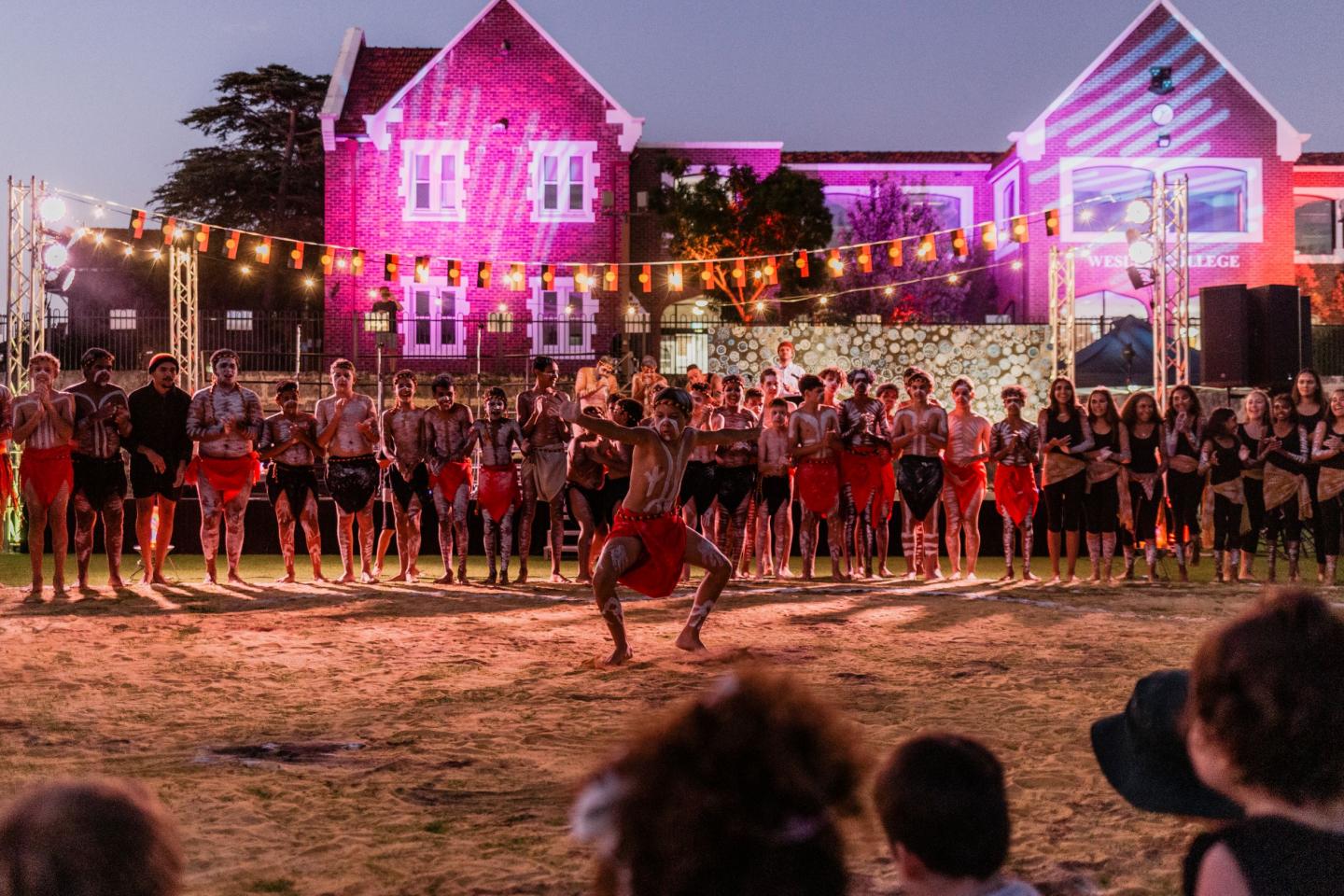Your business treats everyone equally, and you are more than happy to acknowledge and respect the traditional custodians of our land. So why bother with a Reconciliation Action Plan?


Creating a Reconciliation Action Plan (RAP) is not something that can be done in a day. To sit down, consult and discover what your business can be doing to genuinely strengthen relationships with Aboriginal and Torres Strait Islander people can easily take over a year.
This is what Wesley College’s Mat Irving discovered when he embarked on the process of creating the South Perth school’s first Reconciliation Action Plan. As Deputy Head (Academics and Strategy) he led a working group made up of students, staff and community members who collaborated over 18 months to bring the document to fruition.
“It was a huge responsibility to get it right,” says Mr Irving. “This isn’t about lip service or ticking a corporate box, reconciliation has to be a lived reality at Wesley. We were determined to launch a plan that would give the College a very clear set of practical actions we could implement.”
The key to the process is understanding what reconciliation is. Mr Irving points to the definition on the Reconciliation Australia website: “At its heart, reconciliation is about strengthening relationships between Aboriginal and Torres Strait Islander peoples and non-Indigenous peoples, for the benefit of all Australians.
“At Wesley, reconciliation is a statement of how we celebrate our diverse community and show our commitment to walk and grow together. It is a journey that we all share responsibility for as we seek to connect and learn about country, culture, languages, practices and stories in and out of the classroom.”
This idea of strengthening relationships is not new at Wesley, of course. The College has long been known for its inclusivity, most notably with the formation of its Moorditj Mob Aboriginal and Torres Strait Islander cultural program. The program gives Indigenous students a world-class education while encouraging them to celebrate their culture through traditional dances performed at Wesley, other schools and corporate celebrations.
“We understand that Aboriginal and Torres Strait Islander peoples walk in two worlds,” says Mr Irving. “Their culture is a gift of their country and we the community are beneficiaries. We’ve always taken great pride in learning from our Moorditj Mob students while also offering them an education that may lead to improved socio-economic outcomes for the next generation of Indigenous people and their communities.”
While more than 2500 schools nationally are working toward reconciliation, Wesley’s success in this area helped earn it the title of Best Boarding School in Australia in 2019.
“There’s no doubt that part of that win is the way we celebrate Aboriginal and Torres Strait Islander culture. There are a lot of schools doing good work in this space but in terms of a comprehensive culture program celebrated by the entire community, we are unique,” he says.
So, what does a company interested in creating a RAP have to do?
Schools and early learning services follow Reconciliation Australia’s Narragunnawali program, while other types of workplace can be supported to develop one of four types of RAP – Reflect, Innovate, Stretch or Elevate.
Both paths begin by simply downloading one of Reconciliation Australia’s information packs. Every step required is detailed and although your committee will require time for consolation and reflection the process itself is not arduous.
The results can be immense though. Reconciliation Australia has undertaken studies that show, when compared to the general community, people who work in RAP organisations are far less prejudiced, trust each other more, and enjoy more frequent interaction with Indigenous Australians.
And now that Wesley’s RAP has been launched, does Mr Irving feel it’s been a worthwhile process? “Absolutely,” he says. “We’ve always valued our Moorditj Mob program and other authentic experiences that develop a strong sense of belonging, cultural identity, pride and aspiration for our young men, but it’s no longer an ephemeral thing. It’s a stated aim to lift our Aboriginal and Torres Strait Islander students and ensure they have a role to play in decisions at the College.
“For example, from a reconciliation perspective, across our school, I’d love to see the integration of language and a sense of our Indigenous culture embedded in the curriculum. We can work together to include Indigenous stories, history, cultural understanding and awareness that goes beyond our traditional curriculum.”
Mr Irving says the RAP is a significant piece of the College’s broader strategy which has a heavy emphasis on community connection, adding that he’s optimistic there’ll be a at a time when reconciliation, not only in the school but the wider community too, is more than an idea people just talk about.
“So, we have to do what we say we are going to do. We can be strategists and have these lofty ideals and visions but it’s about getting them off the whiteboard and onto the ground. It’s not simply an idea; we need to live it by connecting and celebrating and walking together.
“As I told the staff the other day, the path to reconciliation is only advanced by winning one heart at a time and it’s the next step you take that counts.”
For further information visit here











